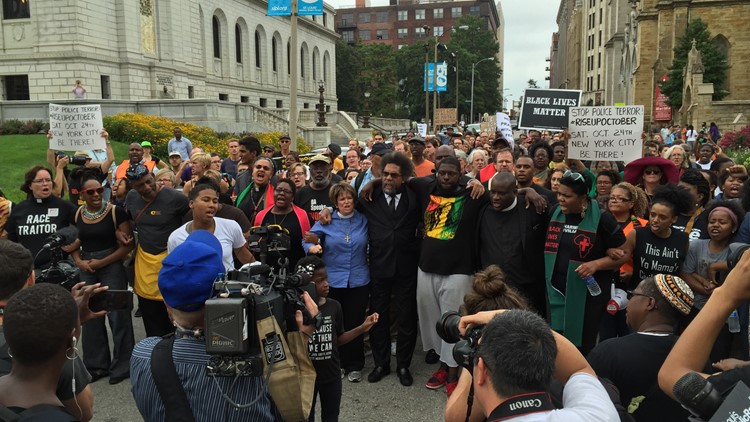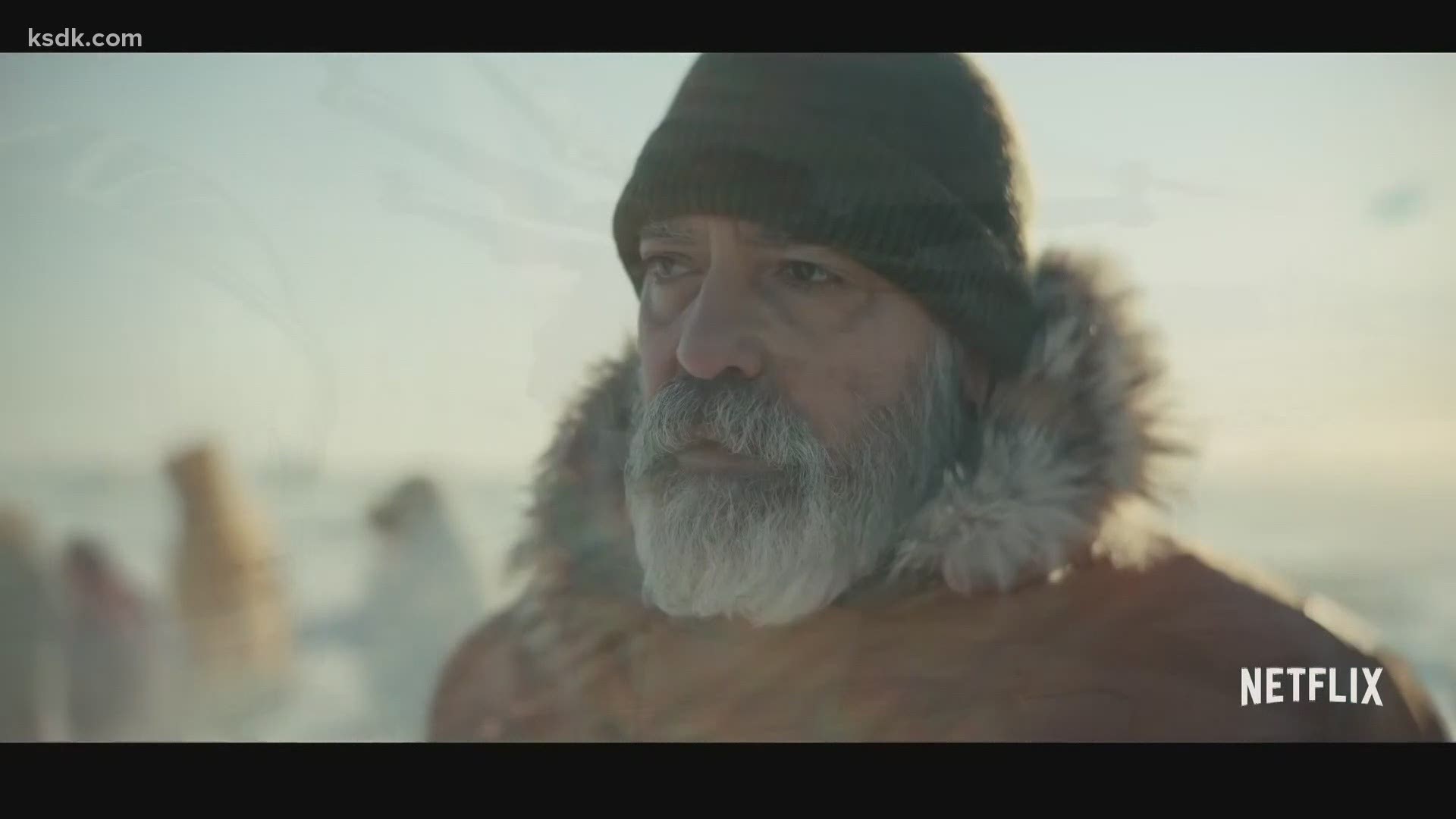ST. LOUIS — Michael Brown Jr.'s body laid in the street for over four and a half hours on Aug. 9, 2014. After being shot and killed by police officer Darren Wilson, the 18-year-old Ferguson native wasn't moved or even covered while family members and friends, including his mom, stood by waiting for even an ounce of respect to be shown to their son. Does that bother you? It should. But that's not even half of it.
It's hard not to be angry as you watch Mobolaji Olambiwonnu's hard-hitting documentary, "Ferguson Rises," unfold--taking the audience right back to the scene of the crime and the movement that followed this unfortunate event. It was that week-and the several that followed the murder-that shaped and ignited the Black Lives Matter movement, one that still walks misunderstood today.
But the secret sauce in Olambiwonnu's documentary is not diving back in for answers or some sort of reckoning; he wants to find the healing current in a sea of hate and misunderstanding. This is a filmmaker driven by purpose and legacy, fulfilling a need to his young son (who was in the womb when he raced off to the Midwest to gather footage after the powder keg reached a defining point) by doing something about the seemingly endless oppression and slow-moving waves of change.
In the powerful 82-minute film, Olambiwonnu gathers accounts from community leaders such as pastors, citizens, business owners, retired and active cops, and members of the Brown family. It's not a one-sided affair either; we hear interviews that describe the foundation for the protests that started peacefully and became raucous, as well as comments from the residents who opposed it. There is a retired cop who gives even-keeled testimony about the actions of the cops while sympathizing with the grieving parties. It's a full-spectrum presentation that adds resonance and emotion, especially when it comes to the deceased kid's dad.
It only takes a couple seconds for Michael Brown Sr. to stare directly out of the television and through your soul. I'm not lying when I say the bald, bearded and always pensive man is easily intimidating, but credit the director for bringing out the indelible hope in an individual that is still walking wounded. It was a chance encounter at a fish fry establishment that connected Brown Sr. with Olambiwonnu, and it's not a stretch to say the movie wouldn't punch as hard without his words.
Brown Sr. was the one who urged protestors to stay peaceful. He was the one who started an organization after losing his son that gathers grieving parents from around the world who have lost their child to racism-fueled violence, including the likes of the late Oscar Grant's uncle. (You'll know the name if you've seen Ryan Coogler's "Fruitvale Station.") Early on in the documentary, he takes the camera and its viewers to the street where his son fell for the last time, and if your eyes stay dry throughout the rest of this movie, you got ice running through those veins. It's a tough watch.
But it's the love and passion that came out of that community, after the tear gas and riot gear subsided, that should lift your spirit. Like the plague that sits next to the fateful street preaches, "Ferguson Rises" has transcendence and hope on its mind, instead of hate and vengeance. While Olambiwonnu unloads a moderate amount of self-shot footage, along with national news reports from the scene, it's the quieter moments with Brown Sr. and his son's cousin and friends that strike a nerve. Hearing Michael Sr. talk about watching his son graduate on Aug. 1 and losing him on Aug. 9 is a poignant and understated shot to the gut of any parent.
That's where Olambiwonnu rightfully keeps the focus, because that's where his focus originated from--the painful reality of a parent losing their son to an act of senseless violence. By filming the reaction and gathering the vital interviews with a wide-ranging group of people, the director gives us a vivid glimpse of grief going 12 rounds in the ring right before our eyes.
Sion Dey's music is so moving, following the currents of Jerry A. Henry's cinematography, which presents the northern city end of St. Louis as a beacon of rebirth instead of black-eyed rubble. When the media finally took their eyes off Ferguson weeks after the shooting, that's when the rise really happened. That's when cities around the country and the world took notice and joined the movement.
More than anything-and this is in his own words-Olambiwonnu's documentary is about finding purpose in the pain. He succeeded magnificently here, producing a film that informs, empowers, and should grow into an end-of-the-year awards contender. This is, or will soon become, the definitive Ferguson documentary--the one that really got it right.
No matter where you sit on the matter, you will find compassion and emotion flooding your senses as "Ferguson Rises" unfolds. That's no joke. I cried, was moved during it, and then found myself unable to move. Tragedy at its core unites us all. It reminds us that life shouldn't be taken for granted, and the wrongdoers shouldn't be left alone. It also reminds us that, against all odds and belief, we are in this together.
This film is available through Wednesday (June 23) via Tribeca At Home, a film festival that goes straight into your living room, part of the Juneteenth programming and presented by the Black Documentary Collective.
Please don't miss this one.



